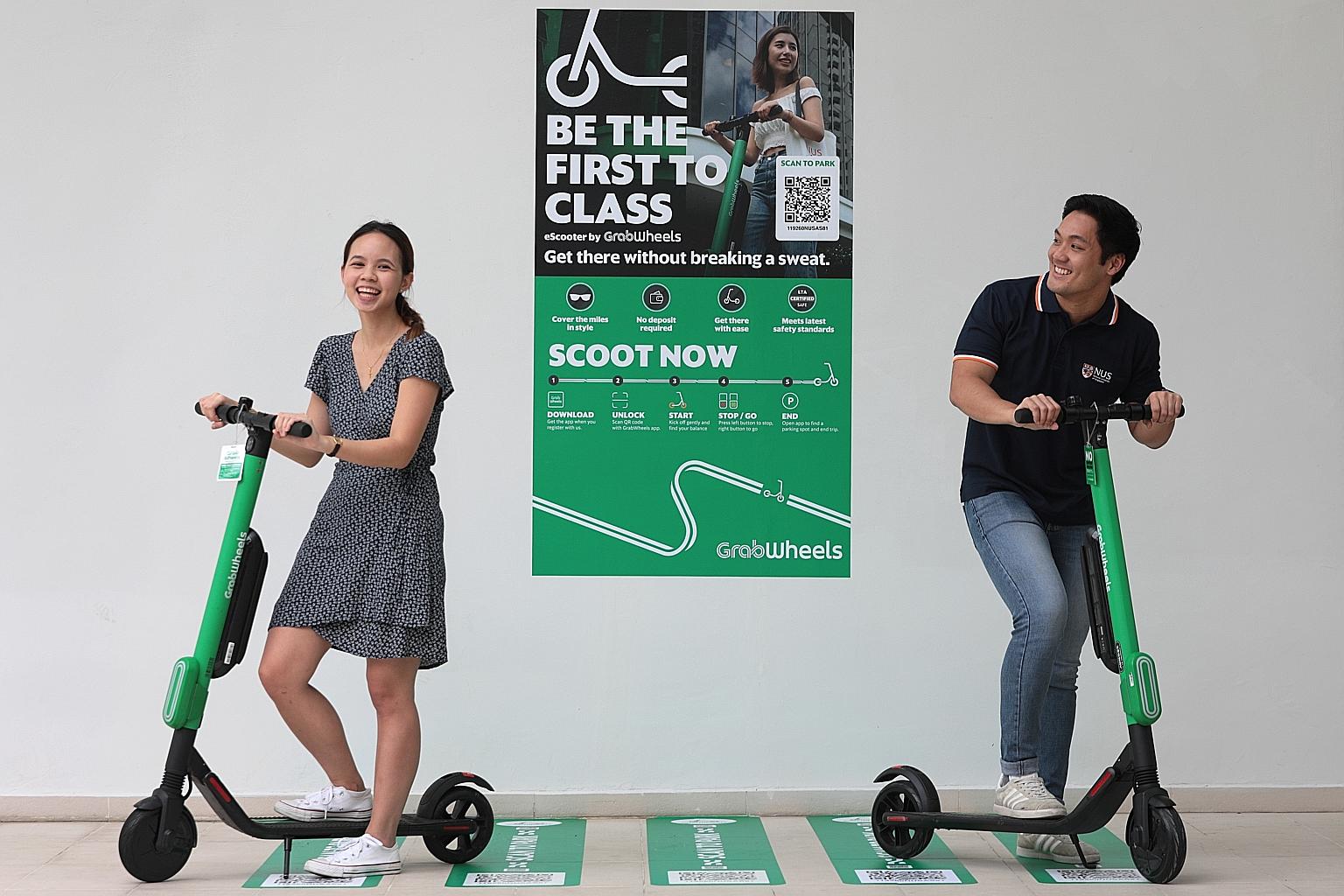Grab rolls out e-scooter service in trial at NUS
GrabWheels app being tested here for first time in 3-month trial at Kent Ridge campus
Sign up now: Get ST's newsletters delivered to your inbox

NUS students Melodie Claire Wong and Nicholas Tey with the GrabWheels e-scooters. There are eight GrabWheels parking stations at the school's Kent Ridge campus, and Grab aims to increase the number of such stations to 30 by the year end.
PHOTO: NUS
Students rushing to classes at the National University of Singapore (NUS) now have a faster way of getting there, thanks to a new e-scooter sharing service.
Tech firm Grab announced yesterday that it is partnering NUS to introduce this service, named GrabWheels, at the school's Kent Ridge campus.
A three-month trial of GrabWheels was launched on Monday and saw e-scooters deployed across eight parking stations within the campus. This is the first time the app is being tested in Singapore.
Grab will also shut down its GrabCycle app on Dec 21, and will invite registered users to download GrabWheels once it is publicly available.
In response to queries by The Straits Times, it said that "a small number" of e-scooters has already been deployed in NUS.
The eight GrabWheels parking stations, which can each accommodate about 10 e-scooters, are located at the Yusof Ishak House, Computer Centre, AS8, Ventus, Kent Ridge Hall, Ridge View Residential College, Faculty of Science and UTown. Grab aims to increase the number of parking stations to 30 by the end of this year.
During this trial period, users are charged $0.20 for every 30 minutes of use or part thereof. Payment can be made using GrabPay and all rides include insurance coverage at no additional cost to users.
Users will need to download the GrabWheels beta app and link it to the main Grab app.
At a parking station, they can unlock an e-scooter using the app. At their destination, the app will direct users to return the e-scooter to the nearest parking location. They end the trip and lock the e-scooter by scanning a specific QR code at dedicated parking spaces.
Every evening, Grab's operations team will collect all the e-scooters, recharge and return them to their original parking locations.
Through in-app messages, Grab plans to educate users on safe riding behaviour. A support team will be on standby to assist users during the trial period.
As part of the trial, Grab and NUS will also study the patterns of how commuters utilise the shared e-scooters, to gain insights into how e-scooters can help address transportation needs on campus.
During the trial period, only NUS staff and students may use the e-scooters, which are intended for use only within the campus. Students ST spoke to said they were e-mailed a link that allowed them to access and download the GrabWheels app.
But Grab said it plans to progressively roll out this service to more locations in Singapore starting from late next month, and will be applying for the personal mobility device licence in the upcoming licence application exercise in January.
It plans to launch the service across South-east Asia, adding that it needs to evaluate the e-scooter sharing service before it is introduced to other markets.
Grab's announcement comes a day after shared e-scooter company Lime announced the deployment of its personal mobility devices in Singapore. Lime's scooters have been available at Singapore Science Park 1 and 2 for at least the past two weeks.


